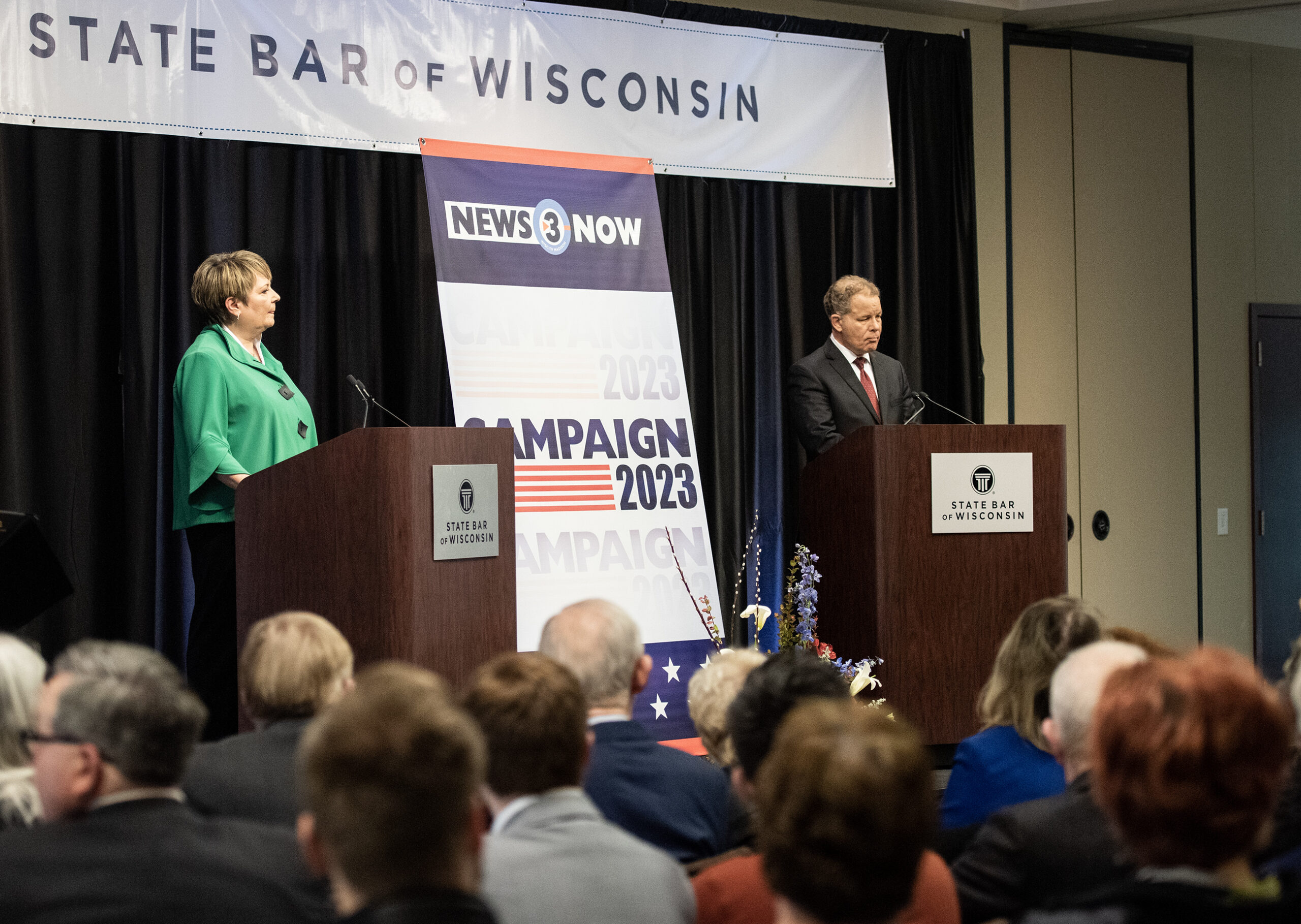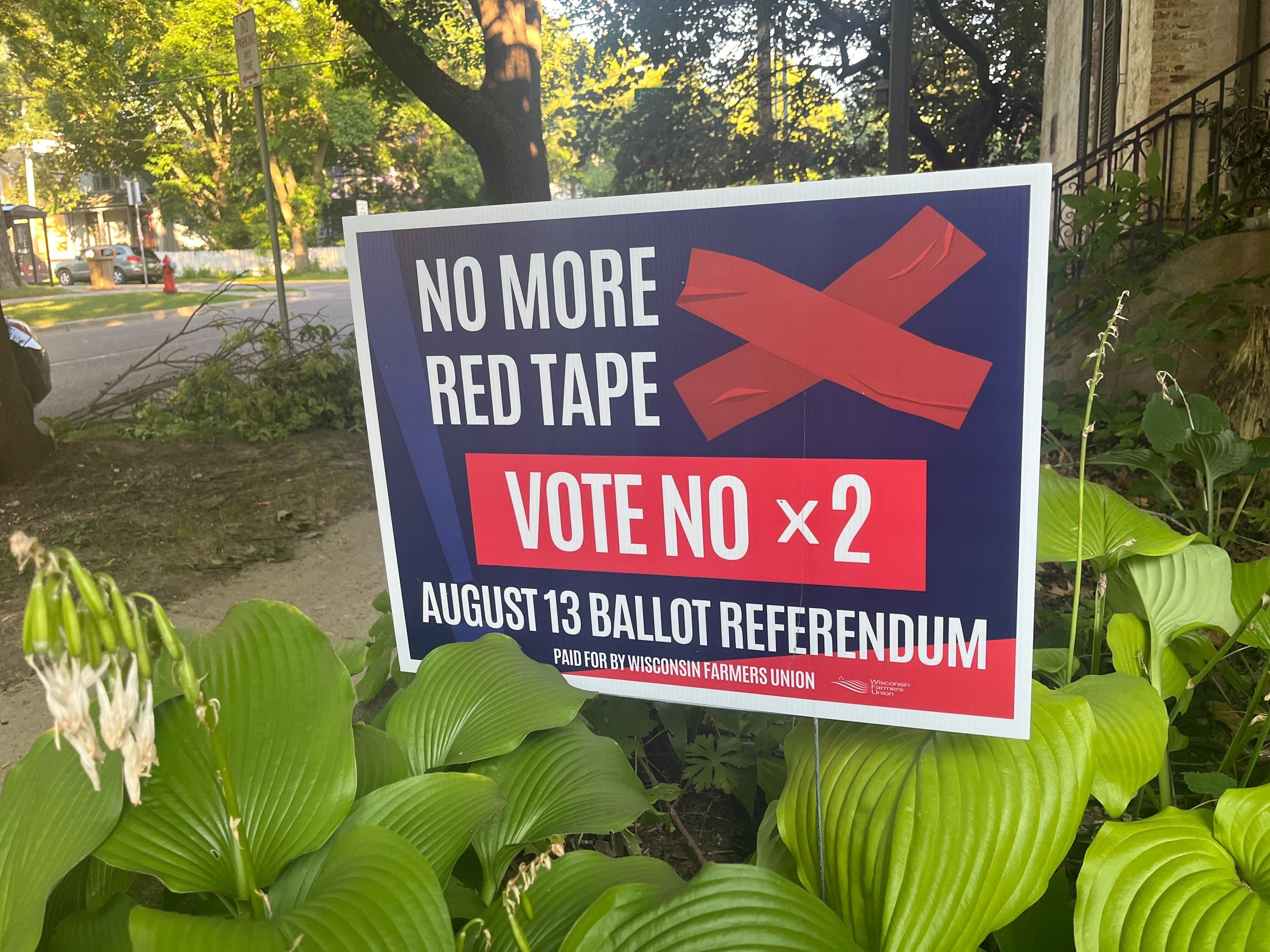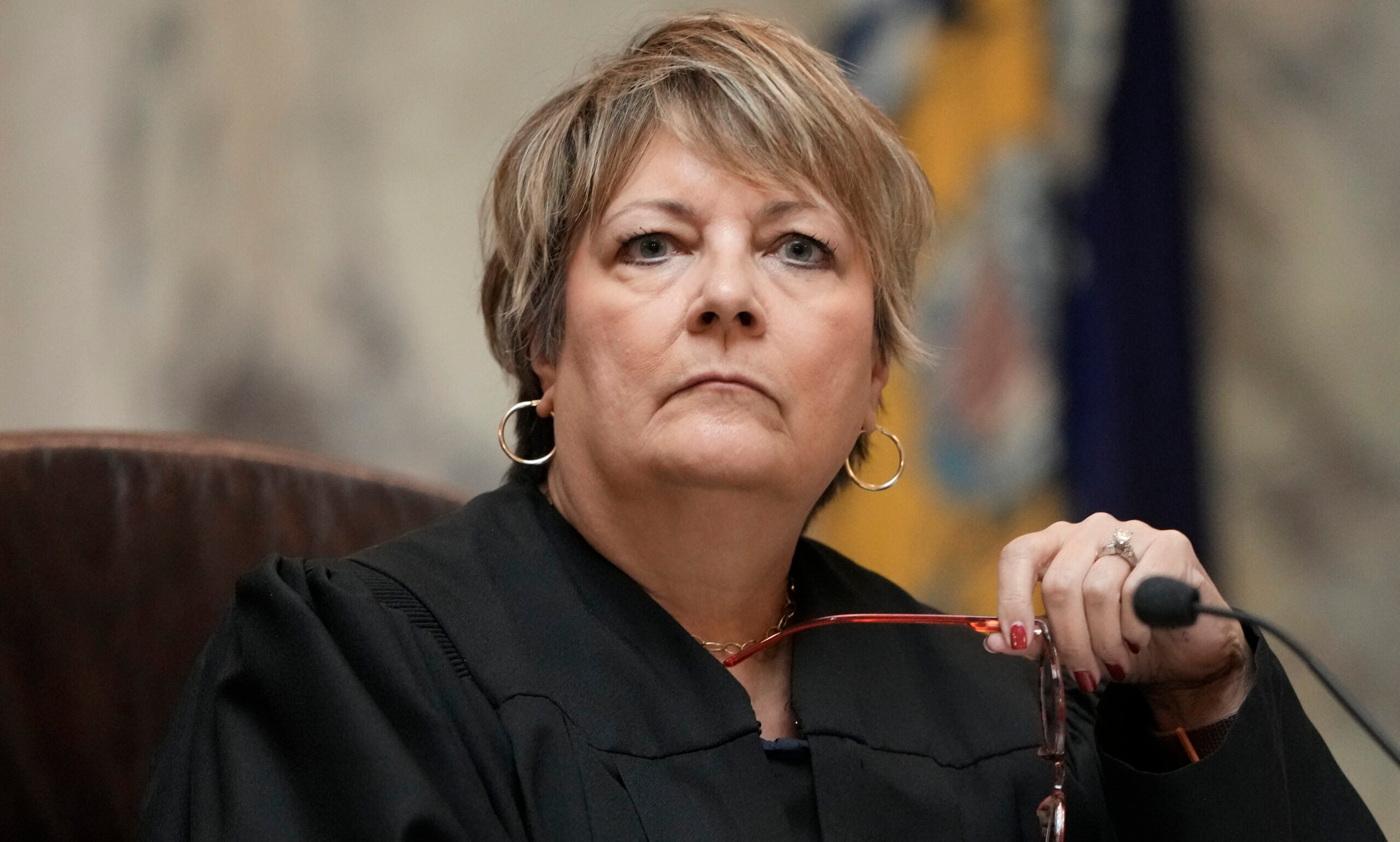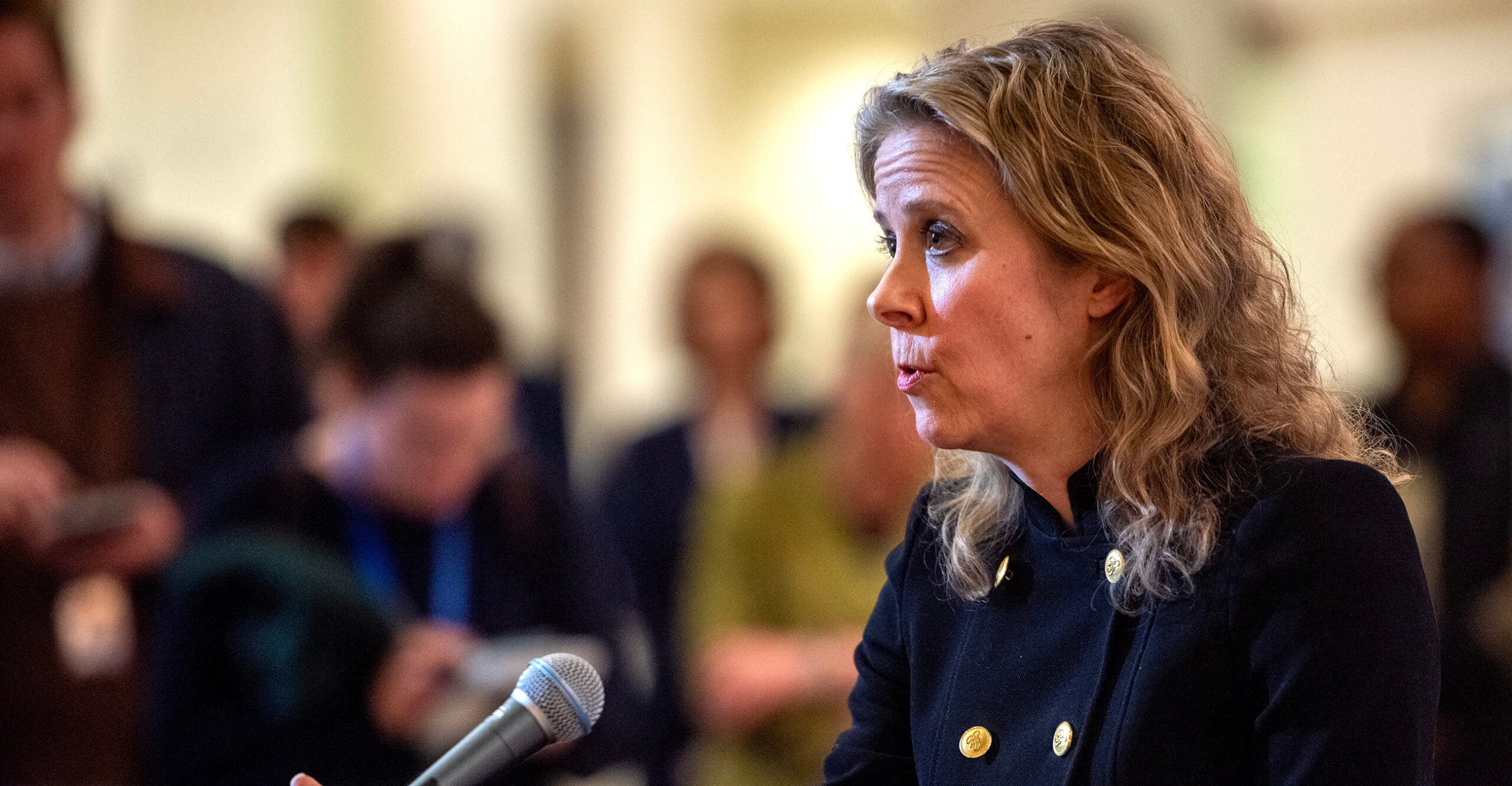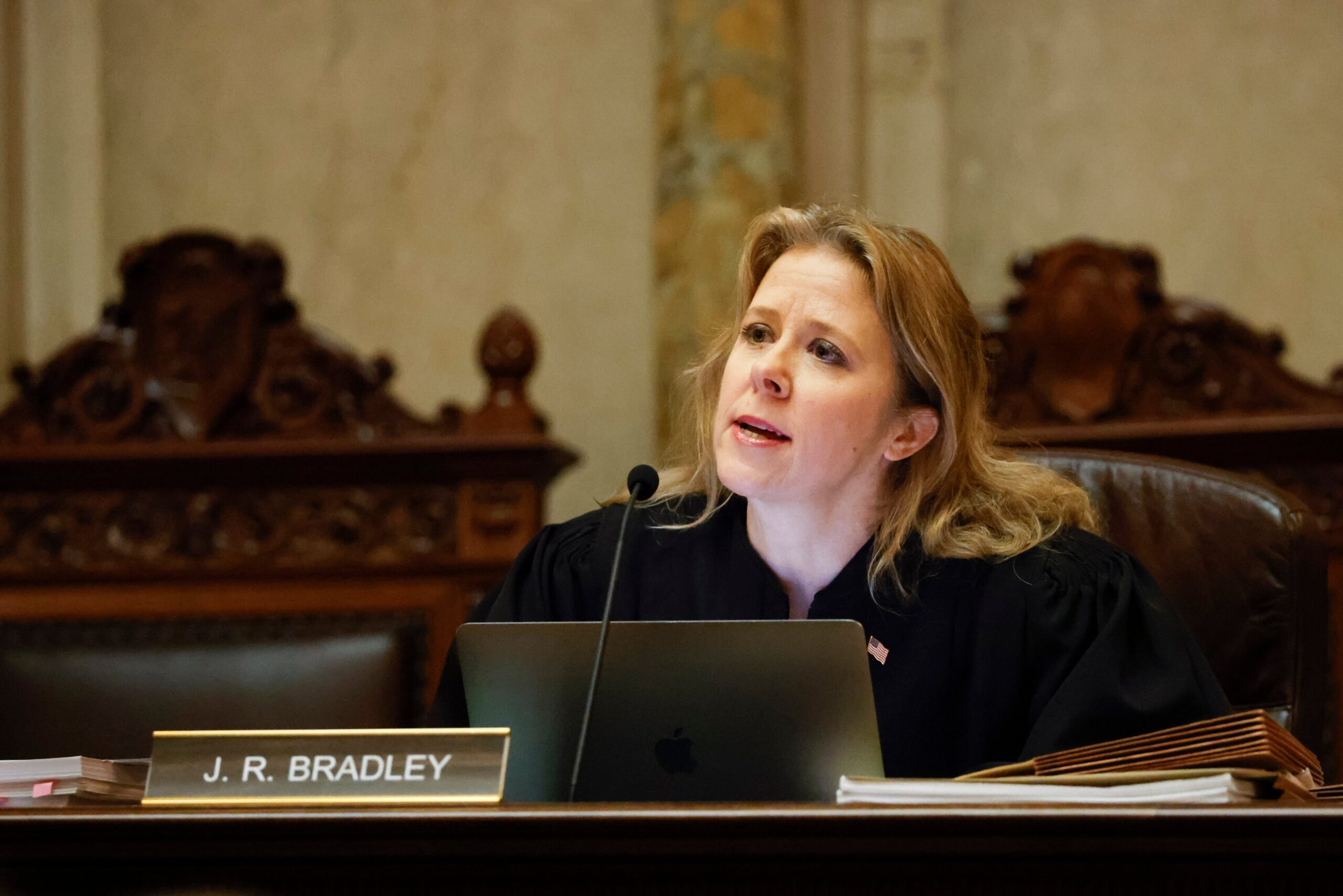Wisconsinites are heading to the polls to weigh in on an open state Supreme Court seat, three statewide referendums and a host of local candidates.
Here’s what voters need to know before they cast their ballots.
Wisconsin Supreme Court
News with a little more humanity
WPR’s “Wisconsin Today” newsletter keeps you connected to the state you love without feeling overwhelmed. No paywall. No agenda. No corporate filter.
Although the race is officially nonpartisan, Milwaukee County Judge Janet Protasiewicz, a liberal, could shift the court’s ideological balance if she beats conservative former state Justice Daniel Kelly for a 10-year term.
The race has attracted national attention, and it’s smashed spending records for a judicial election.
On the candidates:
On the issues:
Wisconsin Supreme Court candidates dispute one another’s impartiality
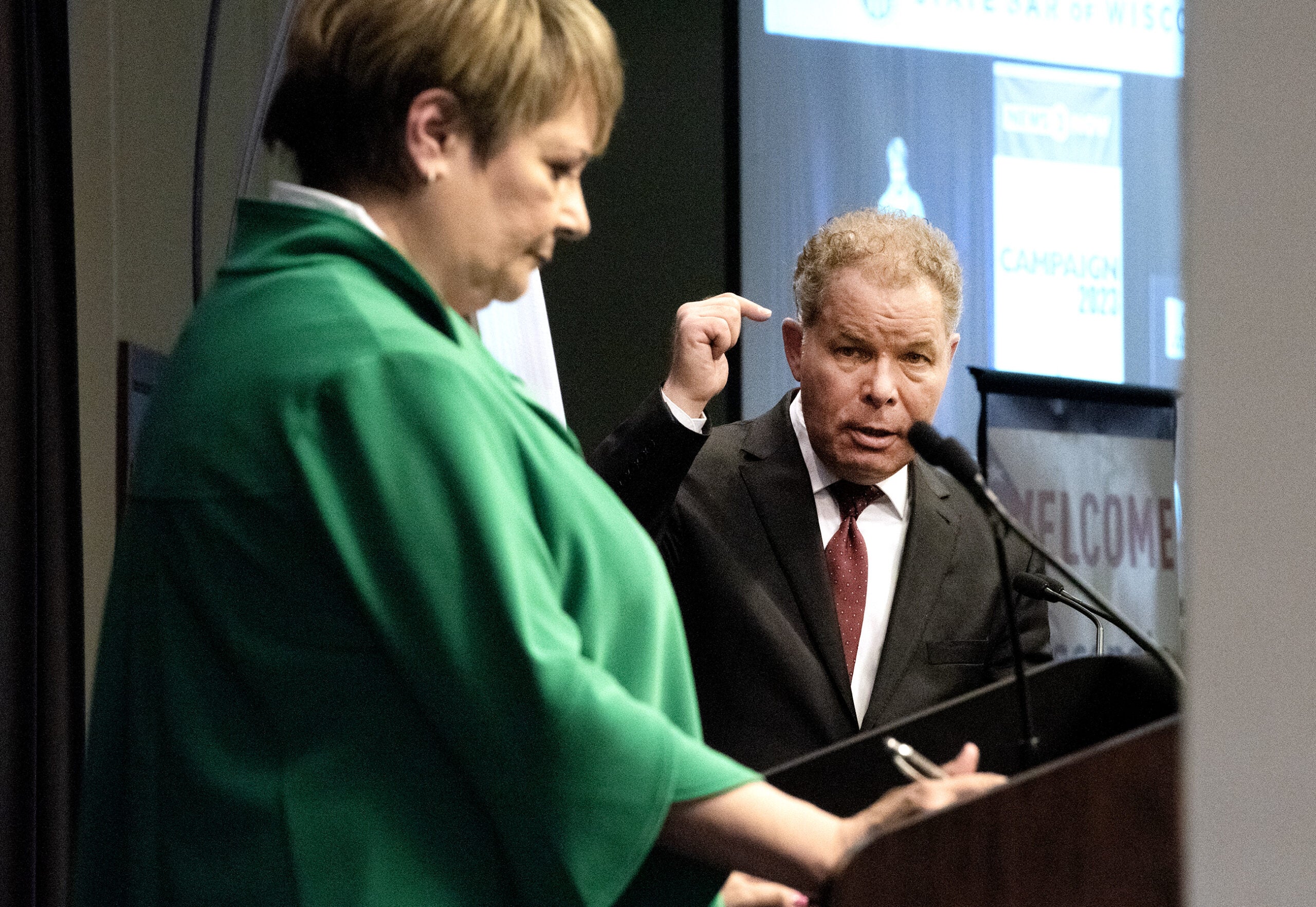
Statewide referendums
Questions 1 and 2 on statewide ballots would amend Wisconsin’s Constitution to expand criteria judges are directed to use when setting cash bail and other conditions that someone has to comply with to be released from jail before trial. A third non-binding question asks Wisconsinites their opinion on whether able-bodied adults should be required to look for work in order to receive taxpayer-funded welfare benefits.
Why is Wisconsin’s bail proposal split into two ballot questions?
From cash bail to public benefits: What Wisconsin voters need to know about April 4 referendums
A crucial election for the state Senate
In southeast Wisconsin, Republican Rep. Dan Knodl and Democrat Jodi Habush Sinykin are competing for a District 8 state Senate seat that was vacated by a retirement.
The special election in an increasingly competitive district will determine whether Republicans secure a two-thirds majority in one chamber of the state Legislature.
Mayoral elections
A host of local elections are dotting ballots across Wisconsin, including races for city councils and school boards.
Click here to preview what’s on your ballot, and check out Wisconsin Public Radio’s coverage of mayoral match-ups in some of Wisconsin’s largest cities:
Madison
Satya Rhodes-Conway, Gloria Reyes face off in race for Madison mayor
Green Bay
Winner of Green Bay mayor’s race could be the tie-breaking vote on city issues if trends continue
Both of Green Bay’s mayoral candidates received threats ahead of April 4 election
Racine
Racine’s mayoral candidates offer differing views on how to address crime, public safety
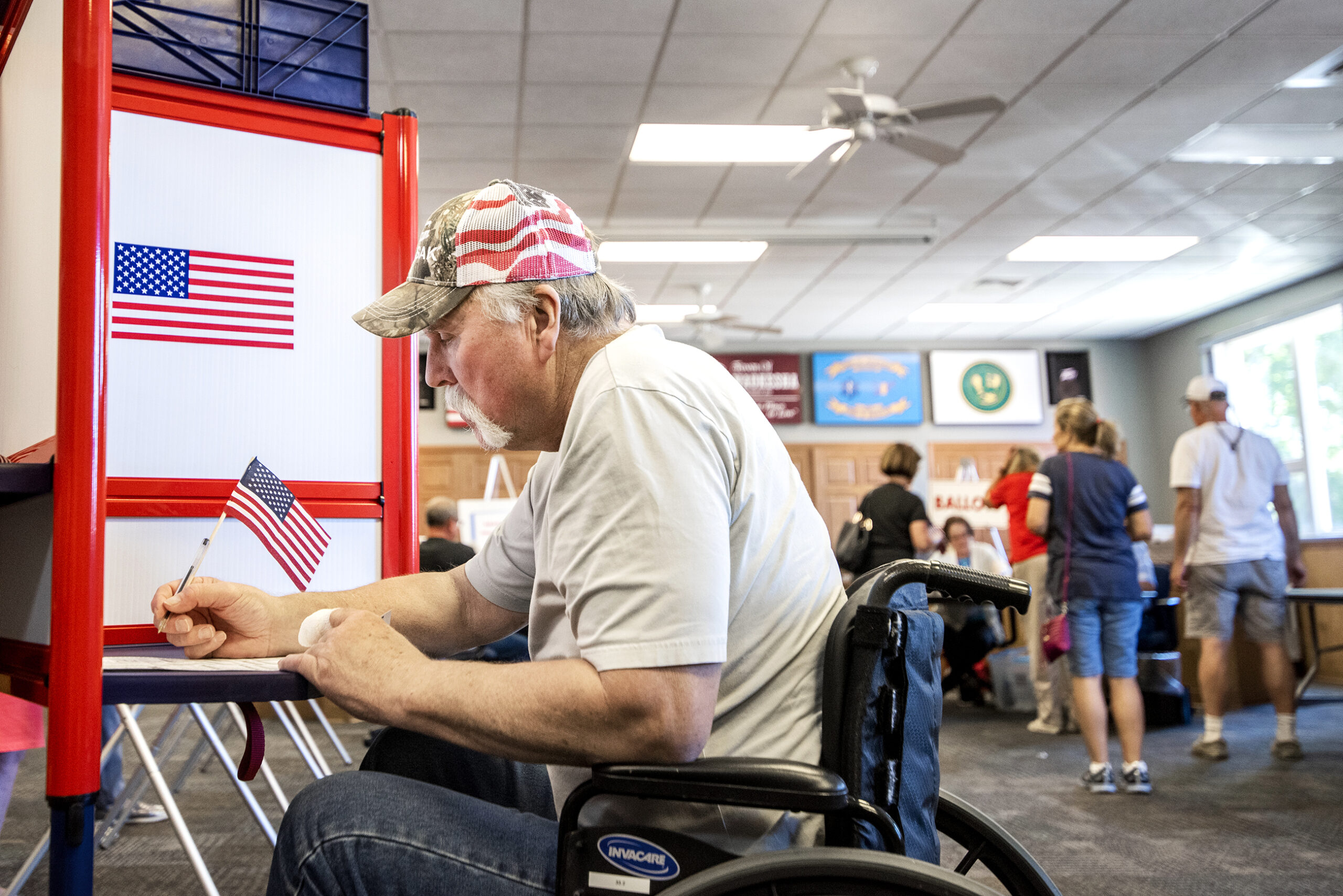
How to vote
Polls are open across Wisconsin from 7 a.m. to 8 p.m., and people in line by 8 get to vote. You’ll need to bring a photo ID to get your ballot. Find your polling place here.
If you aren’t registered already, you have until 8 p.m. on election day to register to vote at your polling place.
Absentee ballots must be received by 8 p.m. April 4 in order to count, so it’s too late to put yours in the mail. But you still have time to return your completed absentee ballot in person. Follow the instructions that came with your ballot to return it to your local clerk’s office, polling place or central count location.
Wisconsin Public Radio, © Copyright 2026, Board of Regents of the University of Wisconsin System and Wisconsin Educational Communications Board.
